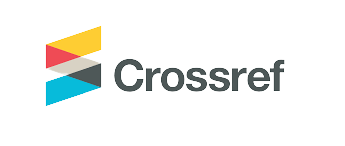The Role of Islamic Education in Building Ecological Awareness Among Youth
Keywords:
Islamic Education; Ecological Awareness; Environmental Ethics; Eco-Theological Pedagogy; Youth EducationAbstract
This study explores the role of Islamic education in building ecological awareness among youth by examining how Islamic values are integrated into the curriculum, pedagogy, and educational strategies in Islamic institutions. Using a qualitative descriptive method, data were collected through literature studies and in-depth interviews with educators and students at Islamic schools and pesantren. The findings show that Islamic teachings contain strong ecological values such as khalifah (stewardship), amanah (responsibility), and ihsan (compassion), which, if effectively taught, can shape youth attitudes toward environmental preservation. However, these values are often not explicitly embedded in the formal curriculum, and the implementation is still limited. The study recommends integrating eco-theological education models into Islamic education to develop more holistic and spiritually grounded ecological consciousness. This approach provides both a moral foundation and practical strategies to support sustainability efforts among Muslim youth.
References
Creswell, J. W. 2022. Mixed Methods Research and Evaluation. Thousand Oaks: CA: SAGE Publications.
Firoza, Robitoh Nafia Wahyu, Sania Azhar Barlinty, and Kemara Yossi Mokhamad. 2025. “The Implementation of Akhlaq-Based Curriculum in Islamic Schools.” JISEI: Journal of Islamic Studies and Educational Innovation 01 (01).
Fulan Puspita. 2015. “Pembentukan Karakter Religius Berbasis Pembiasaan Dan Keteladanan (Studi Atas Peserta Didik Madrasah Tsanawiyah Negeri Yogyakarta 1).” Pascasarjana Universitas Sunan Kalijaga.
Hamid, Abdul, Dimas Adji Pangestu, and Devy Habibi Muhammad. 2022. “Implementasi Model Pembelajaran Cooperative Learning Tipe STAD Untuk Meningkatkan Hasil Belajar Siswa Dalam Pembelajaran PAI Dan Budi Pekerti Di SMP Namira Kota Probolinggo.” As-Sabiqun 4 (5): 1225–39. https://doi.org/10.36088/assabiqun.v4i5.2233.
Herdiyanti, Yuni, Miftakul Janah, and Roni Susanto. 2025. “Building a Golden Generation : Synergy of Education , Technology , and Qur ’ Anic Values.” JISEI: Journal of Islamic Studies and Educational Innovation 01 (01): 36–48.
Huberman, A. Michael, and Saldana Jhonny. 2014. Qualitative Data Analysis a Methods Sourcebook. America: Arizona State University.
Junaedi. 2022. “The Role of Islamic Boarding School In The Business World.” Al Itmamiy : Jurnal Hukum Ekonomi Syariah (Muamalah) 4 (1): 42–48. https://doi.org/10.55606/ai.v4i1.10.
Musdalifah, Musdalifah. 2023. “Implementasi Pembelajaran Kooperatif Dalam Meningkatkan Motivasi Belajar Siswa Di Madrasah.” Al-Miskawaih: Journal of Science Education 2 (1): 47–66. https://doi.org/10.56436/mijose.v2i1.221.
Naufani, Muhammad Zaki. 2024. “Internet of Behavior: Analisis Survai Perilaku Pengguna Internet.” Universitas Islam Indonesia.
Rosenstock, I. M. 1974. The Health Belief Model and Preventive Health Behavior. 2nd ed. Health Education Monographs.
Sampurna, Putranta Cahaya, and Putri Nur Jannah. 2025. “Recontructing Islamic Pedagogy : A Critical Analysis of Traditional and Modern Teaching Approaches.” JISEI: Journal of Islamic Studies and Educational Innovation 01 (01): 48–62.
Sugiyono. 2015. Metode Penelitian Pendidikan (Pendekatan Kuantitatif, Kualitatif, Dan R&D). Bandung: Alfabeta.
———. 2016. Metode Penelitian : Kuantitatif, Kualitatif, Dan R&D. Bandung: CV Alfabeta.
Susanto, Roni. 2024. Konsep Pendidikan Karakter Dalam Islam. U ME Publishing.
Susanto, Roni, and Muhammad Ulin Nuha Afif. 2023. “Menjaga Autentisitas Bacaan Al-Quran Melalui Tashil Di Pesantren Al-Hikmah Purwosari Kediri.” INTEGRATIA: Journal of Education, Human Development, and Community Engagement 1 (2): 143–52. https://ojisnu.isnuponorogo.org/index.php/integratia/article/view/42.
Susanto, Roni, M Makhrus Ali, and Martoyo Deden Hidayat. 2024. “Islamic Religious Education in the Independent Learning Curriculum.” IKTIFAK : Journal of Child and Gender Studies 02 (02): 63–72. https://doi.org/https://doi.org/10.55380/iktifak.v2i2.962.
Susanto, Roni, Wahidatur Rohmah, Sanita Nur Hidayanti, and Sugiyar Sugiyar. 2023. “Interreligious Harmonization (Analytic Study of Kalicinta Village, Kotabumi, Lampung).” Jurnal Kodifikasia: Jurnal Penelitian Keagamaan San Sosial-Budaya 17 (1). https://doi.org/http://dx.doi.org/10.21154/kodifikasia.v17i1.5729.
Susanto, Roni, and Sugiyar. 2023. “Implementation of Mutammimah Book Learning on the Reading Ability of Kutub Al-Turats at Madrasah Riyadlotusy Syubban Ponorogo.” Edukasi Lingua Sastra 21 (1): 207–2017. https://doi.org/https://doi.org/10.47637/elsa.v21i2.667.
Susanto, Roni, and Syahrudin Syahrudin. 2024. “Social Transformation Through Education: Building a Caring and Empowered Generation.” Ngabari : Jurnal Studi Islam Dan Sosial 17 (2): 37–48.
Susanto, Roni, Robbin Dayyan Yahuda, Basuki, and abdul Kadir. 2023. “Implications of Developing Fayd Al-Barakat Book on Learning Qiraat Sab’ah in the Digital Era.” Jurnal Pendidikan Al-Ishlah 15 (4). https://doi.org/https://doi.org/10.35445/alishlah.v15i4.3009.
Yahuda, Robbin Dayyan, Roni Susanto, Wahyu Widodo, and Nur Kolis. 2024. “Totally Muslim Truly Intellectual-Based Holistic Education in Postgraduate Programs.” QALAMUNA: Jurnal Pendidikan, Sosial, Dan Agama 16 (2): 1399–1410. https://doi.org/10.37680/qalamuna.v16i2.4104.
Downloads
Published
How to Cite
Issue
Section
License
Copyright (c) 2025 Journal of Islamic Studies and Educational Innovation

This work is licensed under a Creative Commons Attribution-ShareAlike 4.0 International License.







